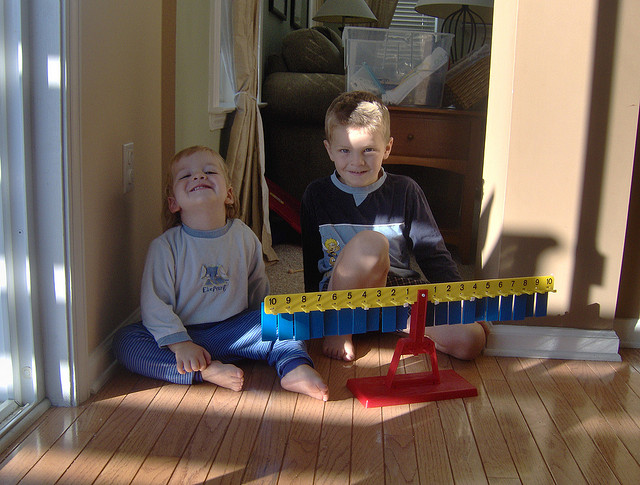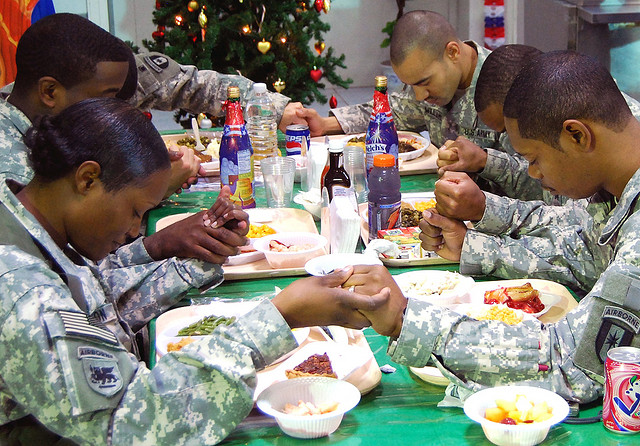What is Our Greatest Joy?

I’m going to get in trouble with this post. I know I am. But I want to speak to something that, it seems, the pandemic is not causing, but is exposing at a deeper level.
Christians are praying people. It is a beautiful thing when Christians pray for one another. Sometimes, that is done in private time, in our “prayer closet,” alone with the Lord. Often, however, it is done as a congregation. We believe in prayer and we pray fervently because we know that prayer is effective in aligning our hearts more closely with the will of God.
And we pray about all sorts of things. Hopefully, we spend time in prayer for the sick, for those who are facing surgeries, and for those who are struggling physically in other ways. Read almost any church bulletin and you’ll likely find either prayer requests of this nature, or a section called “Prayers For…” and a list of physical needs. That is wonderful, and we need to have these situations constantly on our minds, and we need to be taking them before God’s throne consistently and fervently.
But I wonder something……that I’ll get back to in a moment.
Over the last 7-8 months, congregations have been dealing with “the virus.” Churches moved to online only (and some are still meeting only in that way). They upped their hand sanitizer game. They cancelled everything except maybe Sunday morning worship. Many are still not having Bible classes of any type. Others have said that nothing but worship will happen through at least the end of the year. Some have had no youth events or no fellowship opportunities whatsoever since March.
(By the way, this is not a “shot” at those decisions! A blanket statement cannot cover every congregation in every location at this time. Even at Central, not long after we restarted Bible classes, we had to “shut down” for a week due to a positive covid case and what was possibly a good chance of exposure to several members, and it seemed like the right thing to do. I feel for elders right now, because I have watched them agonize over all this. So, this is not a negative criticism of the decisions of any eldership or any individual congregation in the least!)
But here is what I want individual Christians to think about. In 3 John 2, the apostle of love speaks about both the physical health of a person, as well as that person’s spiritual health. He wrote, “Beloved, I pray that all may go well with you and that you may be in good health, as it goes well with your soul.” That is a beautiful balance, because it shows that John thought about–and prayed about–the physical health of these Christians, as well as their spiritual health. It reminds us to pray for both of these things in the lives of those we love and are concerned about.
That’s a beautiful verse. But, two verses later, John wrote something that should also have our attention: “I have no greater joy than to hear that my children are walking in the truth” (3 John 4).
His greatest joy wasn’t that someone was healthy now who had been sick, although he cared about it and prayed for it. His greatest joy was on the spiritual side of things.
Here’s where I’m going to get in trouble: do our prayer lists and the way we are being utterly careful with “the virus” bely what our greatest joy is?
Let me hasten to say, I am not suggesting that we should stop having prayer lists of people who are sick or facing surgeries. I’m not calling for a total reformatting of every church bulletin in the world. And I am certainly not suggesting we stop praying for these issues. We can and we must pray for the physical health of people, and we hope people stay in good physical health or that their health recovers when they are ill. As much as it is out of my comfort zone, one of the things I have missed the most the last few months is praying for people in the hospital, praying for their physical healing and well-being. It is vital that we do that!
I am also not saying that churches should just “open up” and do everything exactly the way they were doing them 8 or 9 or 12 months ago. Precautions do need to be taken, and churches should care enough about people to do what they can, because we do care about the physical well-being of people. And there are some who still do not need to attend in person because their health is very compromised already. Those who are worshiping at home and being consistent in staying at home from other activities and staying faithful to the Lord have my respect, admiration, and fervent prayers.
What I am saying is that, too often, we focus far more on the physical health of people in our prayers, our prayer lists, and our protocol, and we are failing to focus on what should bring us the greatest joy: the fact that people are walking in the truth.
Ask yourself:
- When is the last time your Bible class prayed for a classmate who was trying to have a Bible study with a friend or coworker?
- When is the last time your congregation prayed that a generation of young men would be brought up to be strong and faithful deacons and elders in the future?
- When is the last time you, privately, prayed for the soul of a backsliding Christian and for an opportunity to reach out to that person?
- When is the last time your church bulletin listed a spiritual need on the prayer request list?
What really is our greatest joy?
Physically, yes, let’s stay safe and use common sense. Let’s continue to pray fervently and consistently for the sick. Let’s be thoughtful in how we approach the physical health of members and guests. Let’s not berate, belittle, or run down elders or other church leaders who are doing the best they can in very trying times.
But let’s remember that our primary focus is not staying physically healthy here; it’s being prepared spiritually to go home over there.
To Receive Every Article from A Legacy of Faith through Email for Free, Click Here
AUTHOR: Adam Faughn


